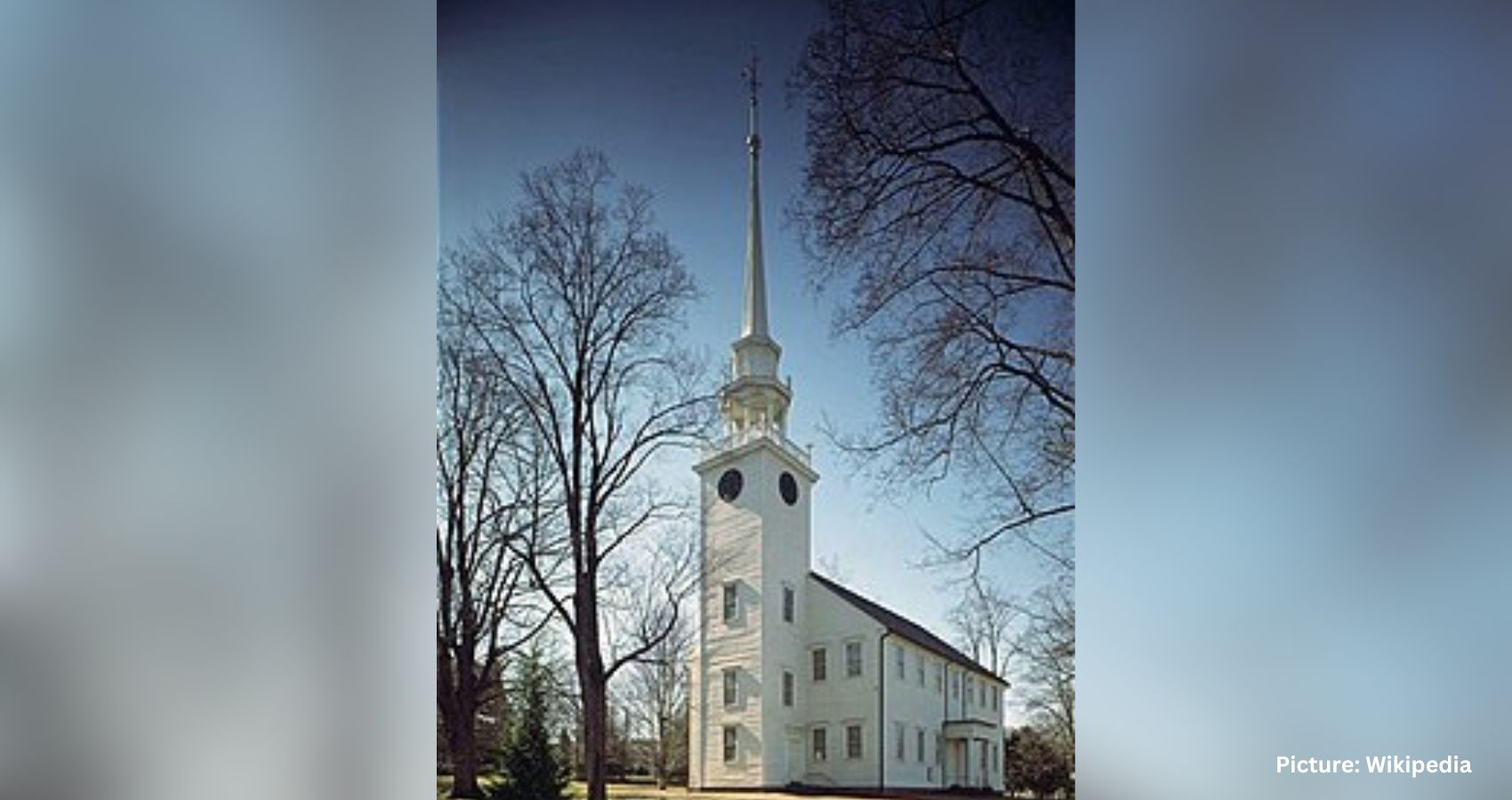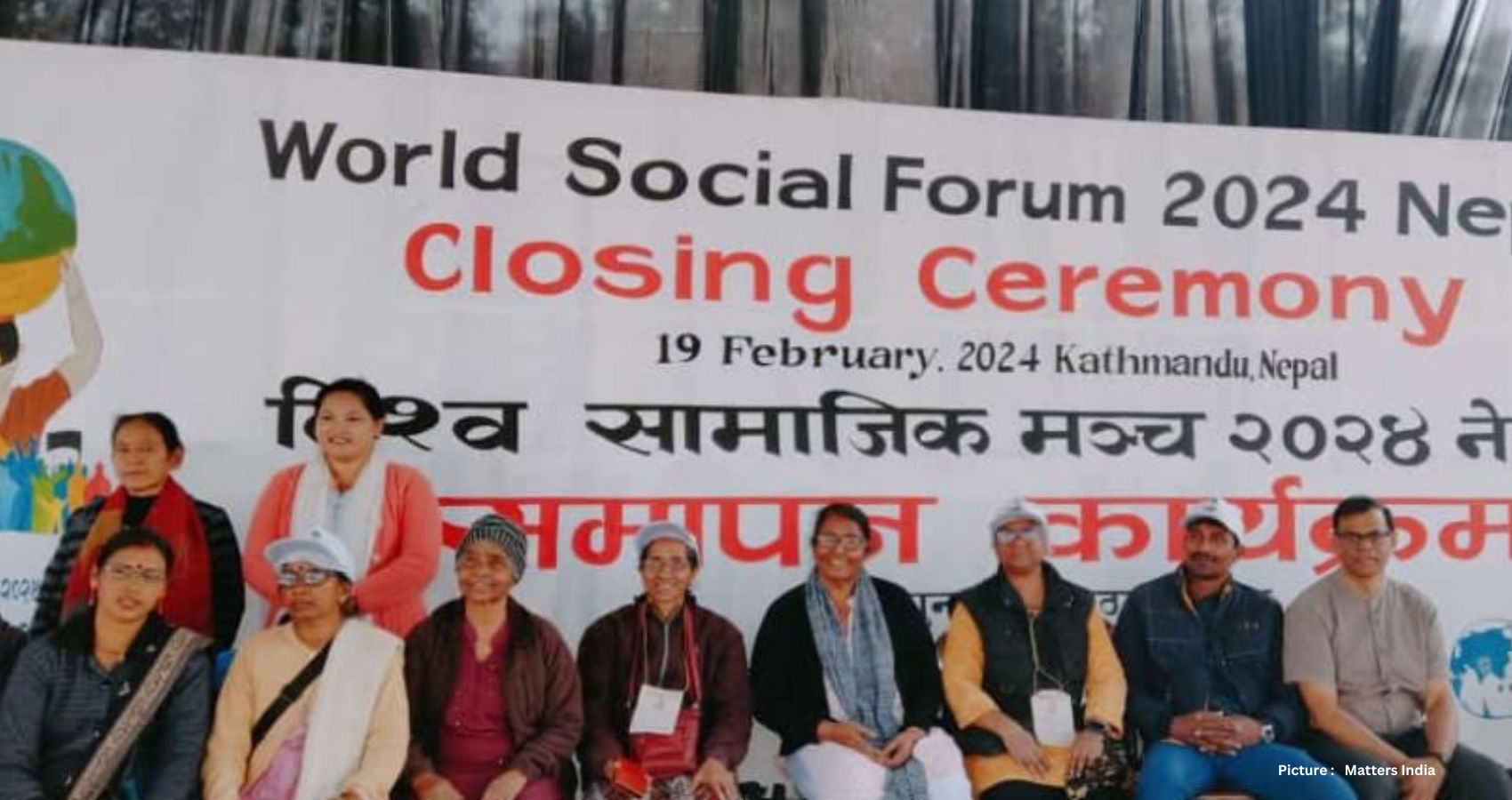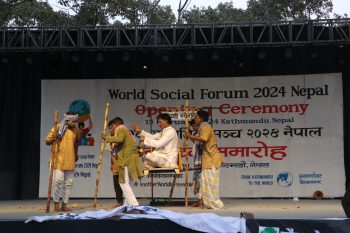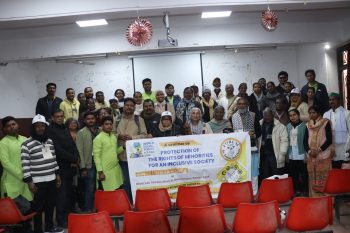At its meeting on June 1, 2024, in Binghampton, NY, the New York Conference of the United Church of Christ (UCCNY) unanimously adopted a resolution condemning the violence against religious minorities in India, including Christians and Muslims. This marks the first such resolution by any UCC denomination, coming soon after a similar resolution by the United Methodist General Conference in April 2024.
The resolution begins by highlighting the dire situation in Manipur, where over 40,000 people have been displaced, 250 churches and 1,700 homes destroyed, and 120 people killed due to Hindu nationalist policies endorsed by India’s ruling Bharatiya Janata Party (BJP). Rev. Dr. Marsha Williams, Conference Minister and Ecumenical Officer, emphasized the importance of addressing the root causes of this suffering, stating, “We want to publicly care for Christians and not only Christians, but other religious minorities who are suffering, and look at the root causes of that suffering in the Indian subcontinent. That should matter to every congregation in New York and around the nation.”
In a show of solidarity, the UCCNY resolved to support organizations like the National Council of the Churches of Christ in the USA (NCC), Federation of Indian American Christian Organizations of North America (FIACONA), Religions for Peace USA, Ecumenical Partners in Outreach, and the United Methodist General Conference. Williams further explained, “This is a call to draw the circle wide. It is our business to care about what happens around the globe and not just close to home. We need to take God out of the box. God is doing far more than what we’re imagining.”
The resolution specifically distinguishes between mainstream Hinduism and Hindutva, the latter being a form of Hindu nationalism which it addresses. It calls for India to be designated as a “country of particular concern” (CPC) due to its systematic, ongoing, and severe violations of religious freedom, as defined by the International Religious Freedom Act (IRFA). Additionally, it condemns the continuous violations of religious freedoms and advocates for the human rights of all religious communities in India.
Further actions outlined in the resolution include urging U.S. representatives and the Biden administration to impose targeted sanctions on Indian government agencies and officials responsible for severe violations of religious freedom, including freezing their assets. The resolution also encourages UCCNY church members to contact their Congressional representatives to bring these violations to the attention of the House Foreign Affairs Committee, the Department of State, and the wider society.
Rev. Martha Koenig Stone, speaking on behalf of the UCC’s Commission On Ecumenical and Interfaith Relations, emphasized the necessity of international pressure to effect policy changes that harm vulnerable populations in India. She stated, “It is time to apply international pressure to demand a change in policies that demonize and target vulnerable people in India because we are in relationship with them. Just as we cannot stand for continued violence against Palestinians and reject any form of violence against Jews and Muslims, we must speak alongside others who are speaking for those who are oppressed. That conviction to address unjust policies is at the heart of our Christian faith because we care for the whole planet.”
Rev. Neal Christie, Executive Director of FIACONA, praised the UCC for its stance. “The UCC has taken a courageous step in raising awareness about the harm done by Hindu nationalist ideologies and policies in the U.S. and in India. The UCC has said that religion should not be weaponized. We stand with them in holding members of the U.S. Congress and the Biden Administration accountable for their role in allowing systemic harm to people simply because of the God they worship and the communities they belong to,” Christie said.
Rev. Prabhu Sigamani of the Farmingville UCC and director for the NY Conference, commented on the broader implications of the resolution. “The prosperity of a nation is determined by the well-being of all people, irrespective of religion, caste, creed, gender, and socio-economic status,” Sigamani stated. He added, “A nation can pride itself when its weakest community members are safe and secure, thereby experiencing liberty to the fullest extent without the fear of persecution. The fundamentals of all religions teach us love and forgiveness. Now can be the time for healing. I am urging the leaders to take action to stop the violence. As our prayers are ascending for your safety and peace, we believe that the blessings of Jesus Christ will descend so that there is peace and harmony.”
This resolution from the UCCNY highlights the critical need for global attention to religious freedom violations and the necessity of concerted international efforts to support oppressed religious minorities in India. Through its solidarity with various organizations and its call for political action, the UCCNY aims to foster a more just and peaceful world, reflecting the core values of their faith.





